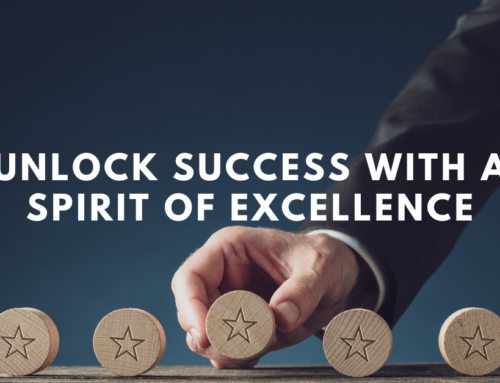The sweetest and most memorable victory is the one that is most challenging. The one that requires you to crack your brain and hustle through the night. It feels like a typical World War II battlefield documentary where the enemy is constantly throwing artillery from an advantageous position. It is a do or die moment.
This is when imminent present failure needs to be viewed as potential future success. Take the case of Walt Disney, who was fired by a newspaper editor for not having good ideas and no imagination. His failure did not pull him down. Instead, with his perseverance, Walt Disney went on to build the world’s most famous theme park, Disneyland. The brand is now valued at USD35 billion dollars. Take your stumbling blocks and turn them into stepping stones.
As entrepreneurs or business leaders, we sometimes focus too much on preventing failure that we forget to shoot for success. This causes us to settle for mediocrity to avoid venturing into the unknown. In the book “Leap” by author Howard Yu, he outlined a principle where business leaders need to experiment to reduce the dark space of ignorance and gain evidence to push forward. This is one thing we as leaders need to improve on.
When we do fail, we beat ourselves. This is because most of us have been brought up in a culture where failure is frowned upon and should be avoided. We forget that failure is part of life and sometimes uncontrollable. But that does not mean we are wrong, we just need to refine the approach from the lessons learnt. Failure is never final. Here’s 3 ways to turn failures around:
1. Ability to learn.

Failure is not the nicest situation to go through. It hurts our ego, self-esteem and confidence. We start to question our ability to perform, to make certain decisions, to lead or to create. We will dwell in self-pity, frustrations and anger.
These negative emotions will hunt us down like a stubborn mosquito. The more we try to brush these emotions away, the more they will stay. A key turnaround would be to acknowledge these emotions first. The next step would be to attach a different mental meaning to the failures. As an example, if we were to view failure as another step closer to victory, we would attach positive emotions to it instead of negative ones.
The final step would be to identify the mistakes that led to the failure and learn from them. Almost all successful people have experienced failure, but their key to success is through the process of learning and reviewing. Only then can we begin more intelligently and get one step closer to success.
2. Be careful of your thoughts.

Your thoughts are a form of self-talk. Self-talk can be motivating or damaging. In this topic, we are referring to negative self-talk. If you are not careful, continuous negative self-talk can be incredibly damaging especially after a failure. If it continues for a prolonged period, it can lead to depression.
As much as you should embrace your emotions, you need to carefully handle your self-talk. You should never allow your self-talk to make you feel worthless, stupid or useless. It is absolutely ok for your failures to sting you for a moment but do everything you can to stay positive and get back on track. Remember that your chosen emotion brings forth its accompanying action, so choose wisely!
Speak to a close family, a friend, or an industry mentor about your situation. Pour your heart out to someone you trust. Avoid bottling up your emotions.
3. Be imperfect but not inactive.

I personally feel that the biggest failure is quitting. Getting knocked down isn’t failure. Staying down is. When you decide to give up, you have closed the door on future progress and positive change. The most successful entrepreneurs are always in motion – learning, earning and creating. They do not choose mediocrity. They choose greatness. Although they may fail in their business, that possible outcome does not deter them from showing up everyday with passion and commitment to build their dreams.
If you’re unsure of how to execute certain tasks, the key is to just do it anyway. Execute first then learn how to refine it better along the way. You do not have to be perfect at the start but you have to start to be perfect.
Success and failure
Nobody wants to fail. Everyone wants to succeed. In reality, we will experience a good dose of success and failure on our journey. We need to know that they are both inter-related. Success can be failure if you are stuck in your comfort zone after achieving a certain victory. Failure can be success if you learn from your mistakes and come back bigger and better.
It all boils down to your mindset and your ability to learn, adapt and bounce back from failure.
I will leave you with this quote:
“Succeed without boasting, fail without justifying.” – Mario Singh





